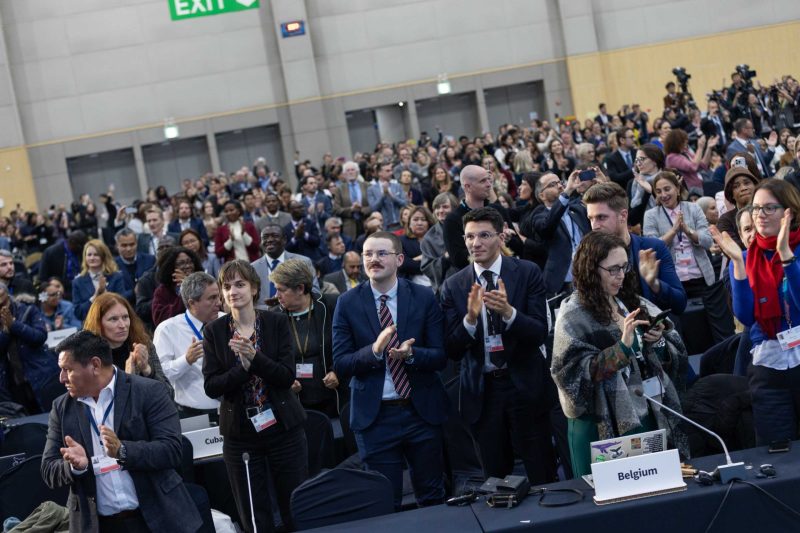Countries failed to break a stalemate over core issues for a new treaty, with a push to manufacture less plastic meeting resistance from oil-rich states
Talks over a global UN pact to tackle plastic pollution will restart at a later date after bitter divisions stopped governments reaching an agreement at what was due to be the final round of negotiations in the South Korean city of Busan.
Despite proceedings going into overtime in the early hours of Monday, diplomats failed to break a stalemate over core issues under consideration for the treaty, including reductions in plastic production.
More than 100 developed and developing countries strongly pushed for measures to cap plastic manufacturing, but a handful of oil and gas-producing states – vocally led by Saudi Arabia, Russia, Kuwait and Iran – stonewalled their efforts, arguing the pact should only address consumption and recycling.
Negotiators failed to find common ground during the week-long discussions – and following numerous missed deadlines, the chair of the talks, Luis Vayas Valdivieso, released a new draft treaty text mid-afternoon on Sunday, the final day. But the document was littered with opposing options and hundreds of brackets around all contentious issues.
It looked unlikely to chart a path to an agreement in the handful of hours left on the schedule.
Production curbs needed for strong global pact on plastic pollution, campaigners say
Ultimately, countries decided to buy more time and suspend the session with a view to resume it – likely at some point next year.
“We have made significant progress in Busan – however, our work is far from complete,” said a bleary-eyed Vayas Valdivieso as he opened the closing plenary.
“Unresolved issues remain challenging and additional time will be needed to address them effectively. There is a general agreement to resume the current session at a later date to conclude our negotiations,” he added.
Interventions from country delegations laid bare, once again, the deep divisions standing in the way of an accord.
Applause for high ambition
Members of the so-called High Ambition Coalition (HAC) seized the opportunity to put on a public display of the widespread support for their treaty proposals, including the inclusion of a “global target” to reduce plastic production to “sustainable levels”.
Juliet Kabera from Rwanda, co-chair of the HAC, said the 85 countries in the coalition voiced their “strong concerns about ongoing calls by a small minority group of countries to remove binding provisions from the text that are indispensable for the treaty to be effective”.
After listing those key elements, she concluded by asking everyone who backed the statement to “stand for ambition”. The overwhelming majority of delegates present in the room rose to their feet and broke into a long round of applause punctuated by loud cheers.

After Rwanda’s statement called on all those supporting an ambitious treaty to stand, the plenary erupted in support at INC-5 in Busan, South Korea, December 1, 2024. (Photo: IISD/ENB – Kiara Worth)
Moments later, Camila Zepeda of Mexico began her intervention by reading out the names of the nearly 100 countries behind a ‘legally-binding” provision to “phase out” the most harmful plastic products and chemicals of concern used in their production.
Both Kabera’s and Zepeda’s statements were supported by many developing countries across Africa, Latin America and the Pacific and nearly all rich nations, with the notable exception of the United States.
Speaking for the European Union, Hugo Schally said the bloc was “disappointed” with the talks’ outcome, but felt “encouraged and empowered by a growing number of countries sharing the same ambitions”.
Sau
Read More

